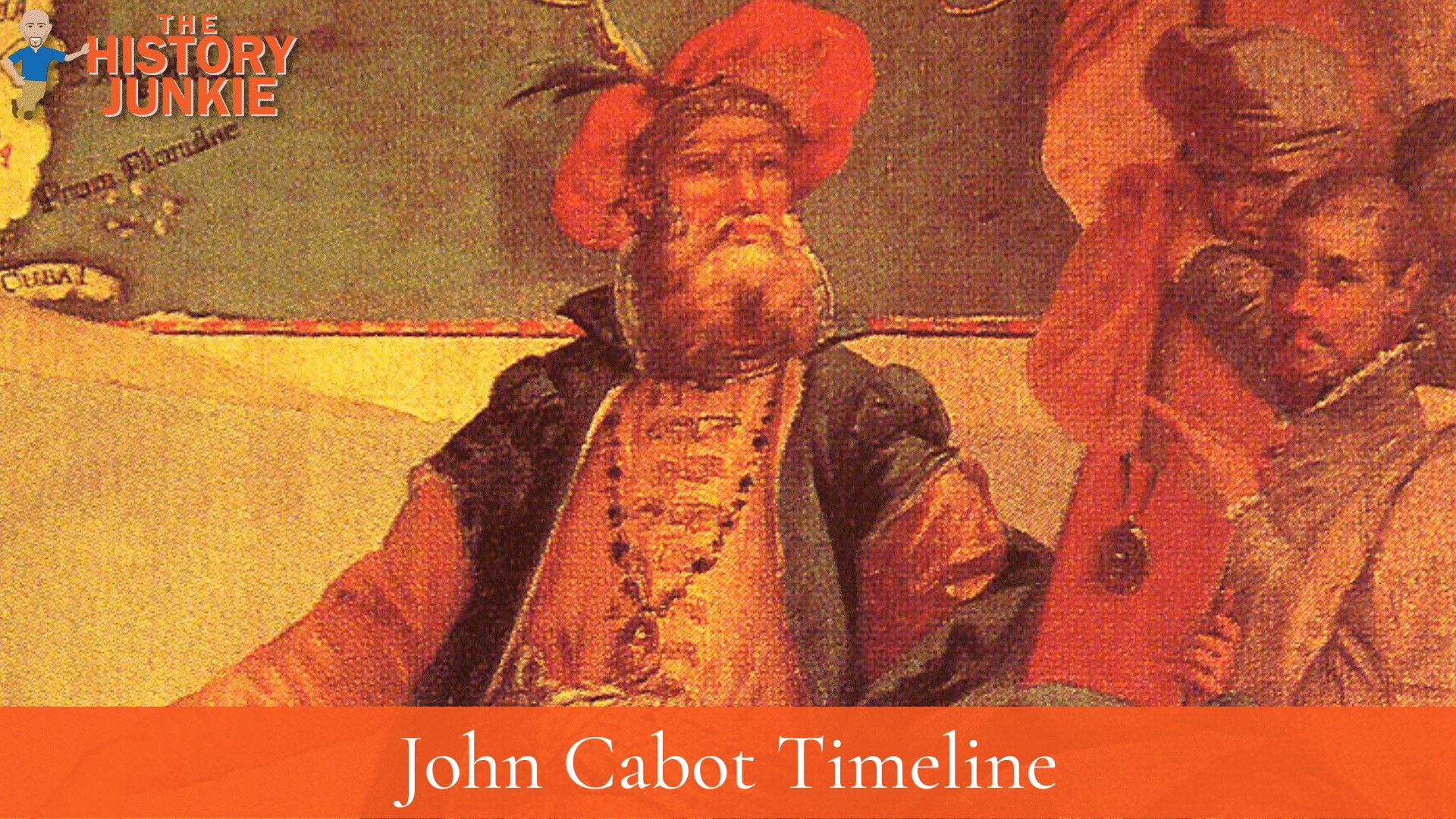1450 - John Cabot is born in Genoa, the same place as Christopher Columbus. His father was Giovanni Caboto.

1461 - 1473 - His family moved to Venice, Italy, where they continued their spice trading business. He would help his family in the business and also learn cartography, navigation, astronomy, mathematics, and seamanship.
1474 - Cabot met and married Mattea. The couple would have three sons: Ludovico, Sebastiano, and Sancto.
March 28, 1476 - He would become a Venetian citizen.
Move To England
1490 - Approximately around this time, John Cabot moved to England to lobby for sponsorship to search for a new trade route to Asia.
1492 - New of Christopher Columbus's discovery sends shockwaves throughout Europe.
1496 - King Henry VII surprisingly sponsored Cabot and granted him the right to sail under the English flag.
Voyages To The New World
May 2, 1497 - John Cabot and his crew begin their voyage on the Matthew to cross the Atlantic Ocean. They are hoping to find a Northwest Passage to the Indies and China.
June 9, 1497 - Cabot reaches the eastern coast of Canada and becomes the first European to reach the Continent of North America.
June 26, 1497 - After a short stay, the crew begins their journey back to England.
August 6, 1497 - John Cabot and the crew return to England. He and his men were given many rewards for their discovery. He begins to plan a second voyage to explore the Northwest Passage further.
February 3, 1498 - King Henry VII grants Cabot permission for another voyage. He assembles a 5 ship fleet and about 300 men.
May 1498 - The Great Chronicle of London (1189–1512) reports that Cabot departed with a fleet of five ships from Bristol at the beginning of May 1498, one of which had been prepared by the king. Some of the ships were said to be carrying merchandise, including cloth, caps, lace points, and other "trifles."
This suggests that Cabot intended to engage in trade on this expedition. The Spanish envoy in London reported in July that one of the ships had been caught in a storm and been forced to land in Ireland but that Cabot and the other four ships had continued on.
Conclusion
At this point, the second voyage of John Cabot is disputed. There is no record of him landing or returning to England.
Some believe that he died on the second voyage, while others believed he returned safely to England and lived into the 1500s.
Some have suggested that Giovanni Antonio de Carbonariis and the other friars who accompanied the 1498 expedition had stayed in Newfoundland and founded a mission. If Carbonariis founded a settlement in North America, it would have been the first Christian settlement on the continent and may have included a church, the only medieval church to have been built there.
Regardless, it is clear that John Cabot fell off the pages of history and either died or lived a quiet life. He would have been nearing 50 at the end of his second voyage.
